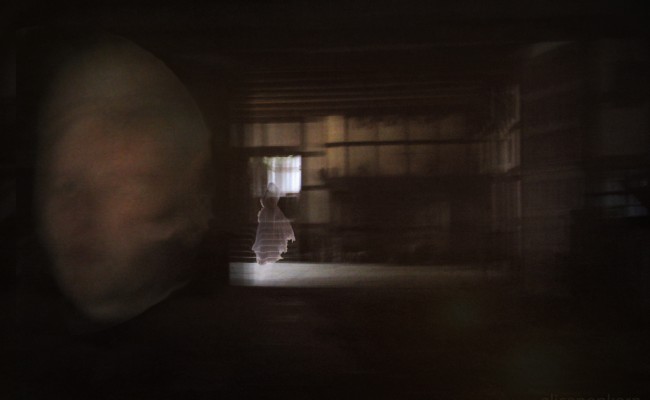In 2004, I found out that I have a half-sister I’d never met. I was fourteen and I remember it as a vague shock, pressed in neatly between discovering rock music and that time my mum accidentally burnt off my fringe with bleach. I remember the receiving of this strangely tumultuous piece of news as something that I was able to quickly and quietly fold away.
Recently, I read a novel manuscript I wrote in 2004, shortly after finding out about my half-sister. In reading this piece of (quite dreadful) fiction, I was vividly thrown back to being fourteen. I realised that there was nothing neat or vague about the response I had to finding out about this unknown sibling. Through the way I’d drawn the characters, I was confronted with how I had imagined her (FYI – dark haired and brooding. Artistic and intelligent. A smoker, like my father). How confusing it had been to feel grief over a relationship I had not experienced. How I had, for a time, peered hopefully into the face of every young woman I encountered who looked a bit like me, wondering if she was my sister. How I had refused to tell my friends for months and months while I worked out what I felt, and whether it was okay to feel it. Reading this manuscript, I was shocked by how much my younger self had felt; by how much of the experience had been preserved in the pages of an unrelated novel. Mostly, I was stunned by how much I had forgotten in only twelve short years.
Fiction is largely a product of our imagination. It is joyfully and willfully unreal. The flickers of a fictional work that are based in reality are easily seen as both conscious and inconsequential. For me, fiction – particularly my earliest attempts – is steeped deeply and unconsciously by my world. Re-reading anything from my teenage years, I am coarsely confronted with ideas of heterosexuality, of religion and mental illness. I am confronted with family violence and addiction.
Fiction does not preserve only the big moments of our lives, but the tiniest moments, too. Reading manuscripts I wrote as a young teenager, I remember how my grandmother picked up a cup of tea; I smile at forgotten jokes that I had once thought were funny. I remember a pair of Big W shoes I adored and wore until the soles came off (about three weeks later). I remember the books I was most intimidated by (I nearly always had a character reading them) and the places I most wanted to visit (many of the stories were set there, after a swift and patchy online search).
In one story, a father had whiskey and pills every night. Because I thought that was normal. In another, a character eats too much and purposefully vomits it back up. Because I thought that was normal, too.
Reading that twelve-year-old manuscript reignited the yearning and agitation I’d felt as a teenager. There was a sense of hope in the story, a lilting optimism that this stranger would not be a stranger for long. And yet, twelve years later, she still is.
Fiction is not defined just by the things we write about, but how we write about them. The same story written ten years apart by the same person would not be the same, influenced, as it is, by the shifting tapestry of that writer’s world: the books they’re reading, the people they’re seeing, the places they’re living. Even the trees around their home, the colour of their walls. The way their grandparents smelled and whether they first discovered tea or coffee, beer or champagne. The things they think about, lying in bed late into the night. The people they miss and how they miss them – whether the grief is sharp and blinding or a chronic, bruising ache that they have adjusted their life around.
Fiction is the product of the things we shied away from as children – whether that was strangers, darkness, or (in my case) a particularly scary episode of Baywatch. Fiction is the people we have loved, the sex we have had, the places that haunt us. Fiction is the stories of our families, our childhood friends. It is whether we believe in ghosts or heaven or hell. It is the foods we most crave when we’re cold and hungry. It is the music that brings us to tears.
A single story is a convergence of all these things, of our thoughts and our dreams and the people in our world. Reading stories long ago pressed into the dark corners of old desks evokes all of these forgotten things. In this way, fiction can be like the pages of a diary, but less conscious of itself, of what it is preserving. Reading works long written and discarded evokes not just memories, but our very selves, brought achingly back to life.



